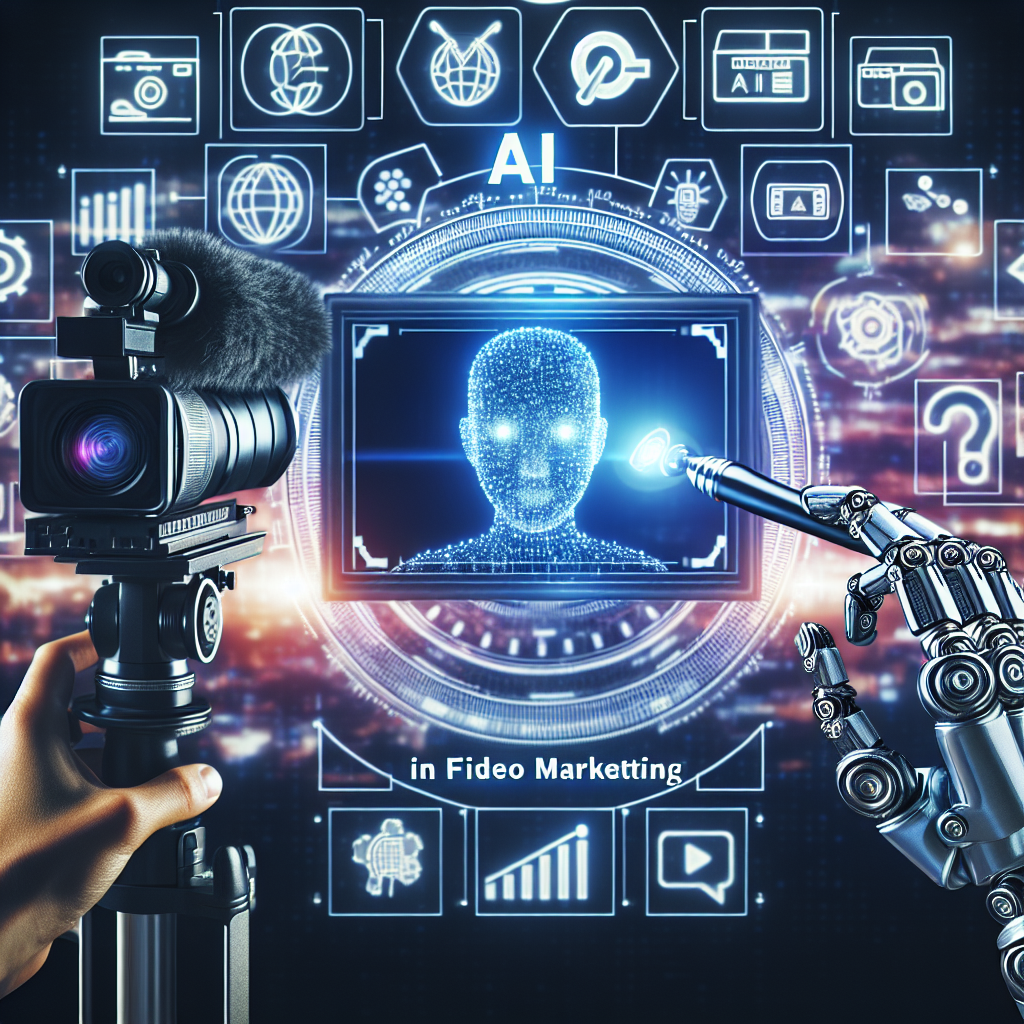The Future of AI in Video Marketing
Artificial Intelligence (AI) has been rapidly transforming various industries, and video marketing is no exception. With the advancements in machine learning, natural language processing, and computer vision, AI has enabled marketers to create more personalized, engaging, and effective video content for their target audience. In this article, we will explore the future of AI in video marketing and how it is reshaping the way brands connect with their customers.
1. Personalization
One of the key benefits of AI in video marketing is the ability to deliver personalized content to each viewer. By analyzing user data and behavior, AI algorithms can create customized video recommendations that are tailored to individual preferences and interests. This level of personalization not only increases engagement but also helps drive conversions and sales.
For example, streaming platforms like Netflix and YouTube use AI to recommend videos based on a user’s viewing history and preferences. This not only keeps users engaged on the platform but also encourages them to discover new content that they may not have found otherwise.
In the future, we can expect AI to further enhance personalization in video marketing by analyzing facial expressions, voice tone, and other emotional cues to deliver content that resonates with viewers on a deeper level. This will enable brands to create more meaningful connections with their audience and drive brand loyalty.
2. Content Creation
AI-powered tools like virtual influencers, deepfakes, and automated video editing software are making it easier for marketers to create high-quality video content at scale. Virtual influencers, for example, can be programmed to deliver branded messages in a natural and engaging way, while deepfake technology allows brands to create hyper-realistic videos that are indistinguishable from reality.
Furthermore, AI-powered video editing tools can automatically generate personalized video ads by analyzing user data and preferences. This not only saves time and resources but also ensures that each video is tailored to the target audience, leading to higher engagement and conversion rates.
As AI continues to evolve, we can expect to see more sophisticated content creation tools that enable marketers to experiment with new formats, styles, and storytelling techniques. This will open up new creative possibilities and help brands stand out in an increasingly competitive digital landscape.
3. Analytics and Insights
AI is revolutionizing the way marketers measure the impact of their video campaigns. By analyzing vast amounts of data in real-time, AI algorithms can provide valuable insights into viewer behavior, engagement levels, and conversion rates. This allows marketers to optimize their video content for maximum impact and ROI.
For example, AI-powered video analytics tools can track viewer interactions, such as clicks, shares, and comments, to determine which parts of a video are most engaging and which are causing viewers to drop off. This information can then be used to refine the content and improve overall performance.
In the future, we can expect AI to play an even bigger role in video marketing analytics by predicting viewer behavior, identifying trends, and optimizing content in real-time. This will enable marketers to make data-driven decisions that drive better results and ultimately increase their bottom line.
4. Virtual Reality and Augmented Reality
AI is also driving innovation in virtual reality (VR) and augmented reality (AR) technologies, which are becoming increasingly popular in video marketing. By using AI algorithms to analyze user data and preferences, brands can create immersive and interactive VR and AR experiences that engage and captivate viewers.
For example, AI-powered chatbots can guide users through a virtual showroom, helping them find products, answer questions, and make purchases. Similarly, AR filters and overlays can enhance the viewer’s experience by adding interactive elements, such as 3D objects, animations, and games.
As AI continues to advance, we can expect to see more sophisticated VR and AR applications in video marketing, such as personalized shopping experiences, virtual product demonstrations, and interactive storytelling. This will enable brands to create memorable and impactful content that drives engagement and conversions.
Frequently Asked Questions (FAQs)
Q: How can AI enhance the personalization of video content?
A: AI algorithms can analyze user data and behavior to deliver personalized video recommendations that are tailored to individual preferences and interests. This level of personalization not only increases engagement but also helps drive conversions and sales.
Q: How is AI revolutionizing content creation in video marketing?
A: AI-powered tools like virtual influencers, deepfakes, and automated video editing software are making it easier for marketers to create high-quality video content at scale. These tools enable brands to experiment with new formats, styles, and storytelling techniques, opening up new creative possibilities.
Q: How can AI improve video marketing analytics and insights?
A: AI algorithms can analyze vast amounts of data in real-time to provide valuable insights into viewer behavior, engagement levels, and conversion rates. This allows marketers to optimize their video content for maximum impact and ROI.
Q: How is AI driving innovation in virtual reality and augmented reality technologies?
A: By using AI algorithms to analyze user data and preferences, brands can create immersive and interactive VR and AR experiences that engage and captivate viewers. AI-powered chatbots, AR filters, and overlays are just a few examples of how AI is enhancing the viewer’s experience in virtual and augmented reality.
In conclusion, AI is revolutionizing video marketing by enabling brands to create personalized, engaging, and effective content that resonates with their target audience. With advancements in personalization, content creation, analytics, and VR/AR technologies, the future of AI in video marketing is bright and full of exciting opportunities for brands to connect with their customers in new and innovative ways.

